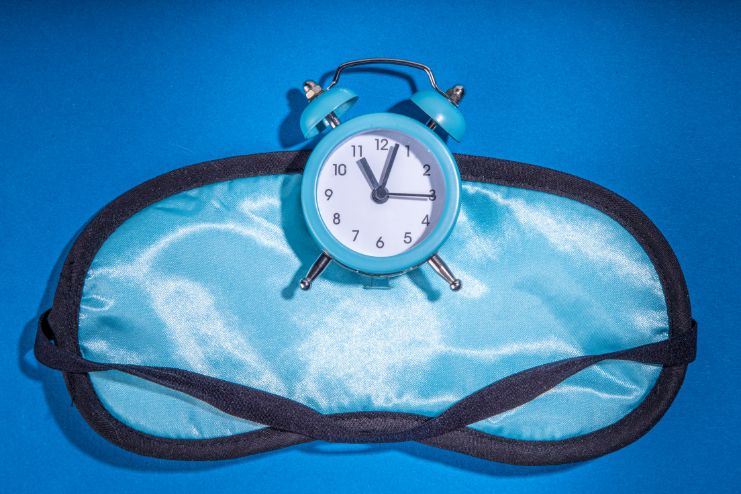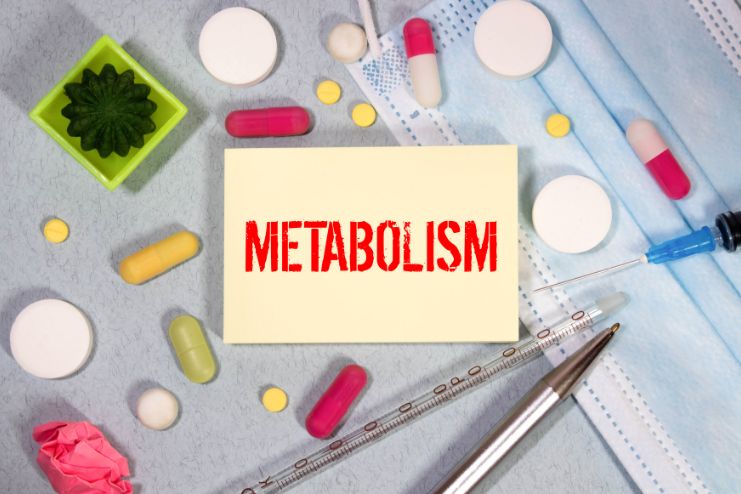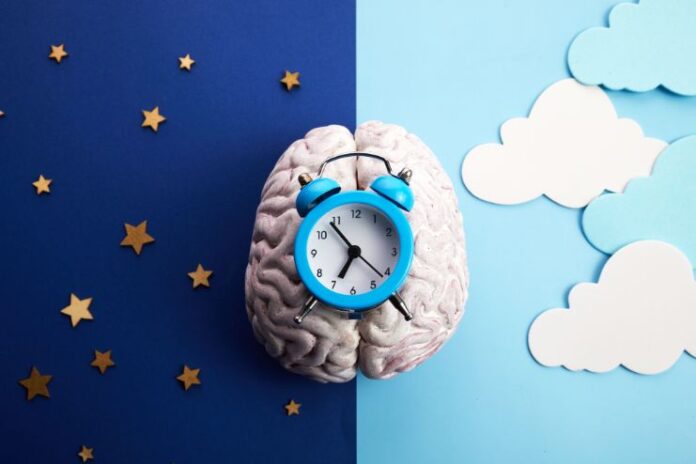Affiliate Disclaimer
Some links in this article are affiliate links. We may earn a small commission if you make a purchase through these links, at no extra cost to you. We only recommend products we find useful to our readersWhat if your body had a built-in blueprint for better health, energy, and sleep? Inherent biological cycles known as circadian rhythms, which generally correspond to a 24-hour day-night cycle, are essential for coordinating the body’s complex processes. These cycles impact hormone production, metabolic activity, sleep-wake cycles, and general well-being.
Circadian rhythms, which function as the body’s internal clock, coordinate with outside stimuli, such as sunshine, to control vital physiological functions. Aligning with these rhythms is key to better health, improved energy, and restful sleep.
By understanding and adapting to our body’s internal clock, we can enhance mood, boost vitality, and support overall well-being. This sets the stage for exploring how our circadian cycles shape daily life. This article helps us understand circadian rhythm and its benefits for our health.
Read More: How to Reset Your Circadian Rhythm for Better Energy, Sleep, and Focus
What are Circadian Rhythms?
The circadian rhythm is a natural biological cycle that occurs approximately once every twenty-four hours in our bodies. These cycles are responsible for regulating the timing of various physiological processes.
The name is derived from the Latin words “circa” (which means around) and “diem” (which implies day) and involves a wide variety of bodily activities, ranging from the cycles of sleep and wakefulness to the hormone secretion. When When these internal clocks work smoothly, they help the body function at its best and adapt to its surroundings.
Role of Suprachiasmatic Nucleus (SCN) in Regulating Circadian Rhythms: The suprachiasmatic nucleus (SCN), found in the brain’s hypothalamus, is the main controller of circadian rhythms. As the body’s master clock, it takes inputs from environmental signals—particularly light—to keep the inner world in balance.
This neurological hub acts like a central command center that synchronizes the functions of various parts of the body with the natural day-night rhythm, making different physiological processes run smoothly.
Importance of Light and Darkness in Influencing Circadian Patterns: The combination of light and darkness is a significant factor in circadian rhythms. During the day, exposure to natural light helps regulate the sleep-wake cycle and encourages alertness. Darkness signals the body to generate melatonin, which promotes sleep.
Artificial lighting and sporadic exposure to light can interfere with these cycles, leading to imbalances in mood, energy, and overall well-being. Understanding how light affects circadian rhythms helps us see its role in regulating our body’s functions.
Read More: Impacts On Glucose In Circadian Clocks And Obesity Enhance Cardiovascular Risks
Circadian Rhythms and Sleep

How Circadian Rhythms Influence Sleep-Wake Cycles: As mentioned earlier, circadian rhythms play a crucial role in regulating our sleep-wake cycles, ensuring they align with the natural day-night pattern. The suprachiasmatic nucleus (SCN) controls the release of melatonin, the hormone responsible for sleep regulation.
As darkness sets in, melatonin levels rise, making us feel sleepy, while daylight reduces its production, promoting wakefulness. This intricate balance between circadian rhythms and sleep cycles highlights their essential role in improving sleep quality and overall well-being.
Impact of Disrupted Circadian Rhythms on Sleep Disorders: A disrupted circadian rhythm can negatively impact your sleep cycles as well as your schedule. An out-of-balance internal clock might be due to shift work, irregular sleep patterns, and exposure to artificial light during the night.
This imbalance leads to insomnia, sleep deprivation, and circadian rhythm sleep-wake disorders. The interdependence between circadian rhythms and optimum sleep shows us the significance of having a strict daily sleep schedule.
Read More: How Hormones Impact Your Sleep Cycle at Every Age
Circadian Rhythms and Health

Connection Between Circadian Rhythms and Metabolism: The complex interaction highlights the substantial influence that circadian rhythms and metabolism have on one’s overall health. Circadian rhythms play a powerful role in metabolism, regulating critical functions such as nutrient absorption, energy levels, and insulin sensitivity. The body’s internal clock carefully coordinates these processes to ensure maximum efficiency.
Disruptions, such as irregular meal times or nighttime binging, can upset this balance and contribute to the risk of metabolic disease and obesity.
Effects of Circadian Disruption on Overall Health and Disease Risk: Changing circadian rhythms can have a far-reaching impact on an individual’s overall health and increase the likelihood of developing several diseases. Numerous factors, such as shift work, irregular sleep-wake patterns, and prolonged exposure to artificial light in the evening, can disrupt the circadian rhythm.
Consequently, there is a correlation between an increased risk of cardiovascular diseases, diabetes, mood problems, and even certain malignancies.
Importance of Timing for Optimal Physical and Cognitive Performance: To work at optimal levels, humans need to space out activities correctly. Alertness, muscle power, and coordination are influenced by circadian rhythms, with specific periods during the day being the best times to perform physical or mental tasks.
Studies indicate that synchronizing activity with natural highs improves performance. People can use these patterns to schedule their day better, keeping challenging activities during their body’s peak periods of operation.
Read More: Best Foods to Eat Before Bed for Deep Sleep & Muscle Recovery
Factors Affecting Circadian Rhythms

Influence of External Factors such as Light Exposure and Meal Timing: External factors such as the timing of meals and exposure to light can profoundly influence your circadian rhythm. Daylight strengthens these rhythms, which increases wakefulness and ensures a proper sleep-wake cycle. Artificial lighting during nighttime weakens these patterns by compromising sleep hormones.
The timing of meals also influences metabolism and the absorption of nutrients, highlighting the need for balanced eating routines. By ensuring exposure to natural light and consistent meal times, individuals can assist in keeping a properly functioning circadian rhythm, aiding both sleep quality and metabolic function.
Impact of Lifestyle Choices like Shift Work and Travel on Circadian Patterns: Shift workers often experience misalignment of their internal clocks due to irregular work hours, leading to sleep disturbances and potential health issues. Similarly, jet lag occurs when sudden time zone changes throw off the body’s natural rhythm, causing fatigue and difficulty adjusting.
These lifestyle choices can negatively impact both physical and mental well-being. However, adopting strategies like gradually transitioning to new schedules, managing light exposure, and prioritizing sleep can help minimize these effects and support a healthier circadian balance.
Role of Genetics in Determining Individual Circadian Preferences: An individual’s circadian preferences are primarily shaped by genetics, influencing their natural sleep-wake patterns. Some people naturally tend to be “morning people,” and others “night owls.” This chronotype, based on genetic variation, dictates peak performance and alertness times.
Being aware of our chronotype makes possible the personalization of routines of the day based on natural timing, maximizing effectiveness and happiness.
Strategies For Aligning Sleep Patterns with Circadian Health

One way to sleep better is to sync our sleeping patterns with the circadian cycles. Here are a few ways to do it:
Establish Consistent Sleep-Wake Cycles: A regular sleep-wake cycle is crucial in maintaining circadian health. Sleeping and waking up at the same time every day synchronizes the internal body clock, strengthening a robust and stable circadian rhythm. Regularity enables physiological processes to work at their best, resulting in improved sleep quality, enhanced energy levels, and overall well-being. A consistent sleeping pattern also assists the body in becoming accustomed to the demands of everyday life and maintains the natural equilibrium of its internal rhythms.
Prioritize Exposure to Natural Light During Daytime Hours: Daytime natural light exposure protects circadian well-being. Daytime natural light tells the body’s internal clock to diminish melatonin release and encourage alertness. Pursuing activities such as outdoor exposure, working in bright areas to take breaks, and leaving curtains or blinds open enables more successful circadian entrainment. This straightforward yet powerful strategy is a key factor in controlling sleep-wake rhythms.
Create a Sleep-Inducing Environment and Bedtime Routine: Establish a calming nighttime routine and optimize your bedroom environment to enhance your circadian rhythm and promote restful sleep. Regulate the room temperature to a comfortable level, limit screen time to reduce blue light exposure, and dim the lights as evening approaches. Transform your bedroom into a cozy retreat with soft bedding, a supportive mattress, and plush pillows to create the perfect atmosphere for a restful night’s sleep.
In addition to the right environment, a consistent bedtime ritual signals to your body that it’s time to relax and prepare for sleep.
Read More: Best Sunrise Alarm Clocks for a Natural Wake-Up
Conclusion

Circadian rhythms control basic body functions, ranging from metabolism to sleep-wake patterns. These internal clocks are influenced by the suprachiasmatic nucleus, environmental cues, lifestyle, and genetic makeup. To maximize circadian wellness, it’s important to develop regular sleep-wake patterns, maximize exposure to natural light, and promote a sleep-conducive environment.
By synchronizing daily habits to these rhythms, we improve sleep quality, increase productivity, and maximize overall health. Prioritize circadian health—it is the key to your energy, concentration, and long-term vigor. Start today by making small, mindful changes that work in harmony with your body’s natural clock!
-
Mar 2024Written by Ankita
-
Apr 2025Edited by Vaishnavi
References
- https://www.sleepfoundation.org/circadian-rhythm
- https://www.nigms.nih.gov/education/fact-sheets/Pages/circadian-rhythms.aspx
- https://www.news-medical.net/health/How-Does-the-Suprachiasmatic-Nucleus-(SCN)-Control-Circadian-Rhythm.aspx
- https://www.sciencedirect.com/topics/neuroscience/suprachiasmatic-nucleus
- https://www.ncbi.nlm.nih.gov/books/NBK546664/
- https://energy5.com/the-relationship-between-lighting-and-circadian-rhythms
- https://www.ncbi.nlm.nih.gov/pmc/articles/PMC6751071/
- https://www.cdc.gov/niosh/work-hour-training-for-nurses/longhours/mod2/19.html
- https://www.uclahealth.org/medical-services/sleep-disorders/patient-resources/patient-education/circadian-rhythms
- https://www.medicalnewstoday.com/articles/circadian-rhythms
- https://www.sleepfoundation.org/circadian-rhythm-sleep-disorders
- https://www.ncbi.nlm.nih.gov/pmc/articles/PMC5142605/
- https://my.clevelandclinic.org/health/diseases/12115-circadian-rhythm-disorders
- https://health.clevelandclinic.org/how-to-reset-circadian-rhythm
- https://www.everydayhealth.com/sleep/everything-you-need-know-about-your-circadian-rhythm/
- https://www.sleepfoundation.org/circadian-rhythm/can-you-change-your-circadian-rhythm
- https://karger.com/anm/article/74/4/322/51852/Effect-of-Circadian-Rhythm-on-Metabolic-Processes
- https://pubmed.ncbi.nlm.nih.gov/21633182/
- https://www.ncbi.nlm.nih.gov/pmc/articles/PMC8483747/
- https://www.ncbi.nlm.nih.gov/pmc/articles/PMC5395635/
- https://www.ncbi.nlm.nih.gov/pmc/articles/PMC6200828/
- https://journals.sagepub.com/doi/10.1177/23727322231193967
- https://www.tomorrow.bio/post/how-meal-timing-influences-weight-management-and-health-optimization-2023-10-5364941886-futurism
- https://www.sciencedirect.com/science/article/pii/S0960982217305043
- https://www.ncbi.nlm.nih.gov/pmc/articles/PMC6520689/
- https://www.ncbi.nlm.nih.gov/pmc/articles/PMC3630968/
- https://journals.sagepub.com/doi/10.1177/1178638819869024
- https://www.ncbi.nlm.nih.gov/pmc/articles/PMC5647832/
- https://www.ncbi.nlm.nih.gov/pmc/articles/PMC7202232/
- https://sleep.hms.harvard.edu/education-training/public-education/sleep-and-health-education-program/sleep-health-education-80
- https://www.hopkinsmedicine.org/health/conditions-and-diseases/sleepwake-cycles
- https://hr.wustl.edu/creating-a-sleep-routine-6-steps-to-better-sleep/
- https://www.healthline.com/health-news/exposure-to-natural-light-during-the-day-may-help-you-sleep-better
- https://news.northwestern.edu/stories/2014/08/natural-light-in-the-office-boosts-health/
- https://sleepdoctor.com/sleep-hygiene/bedtime-routine/
- https://www.healthline.com/health/healthy-sleep/ultimate-guide-for-turning-your-bedroom-into-a-sleep-sanctuary
- https://www.sleepfoundation.org/sleep-hygiene/bedtime-routine-for-adults
In this Article



















